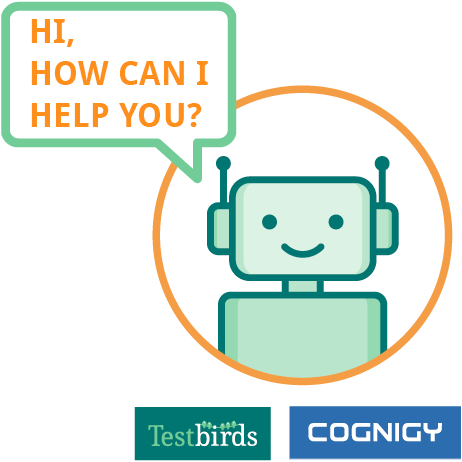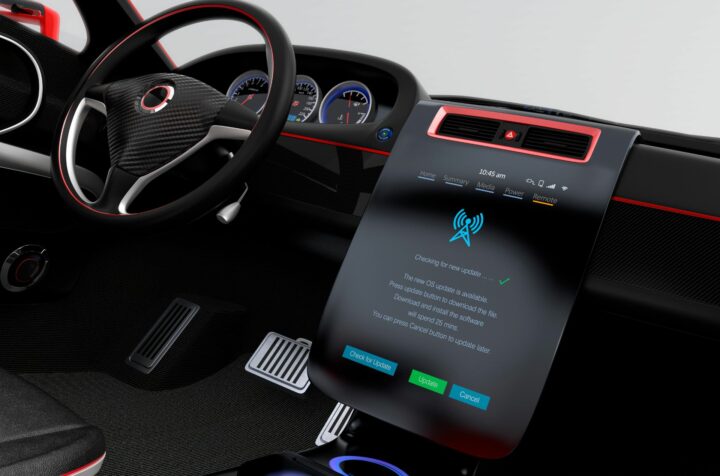Throughout its existence, Google developed into so much more than just the search provider it initially started out as. I’m sure you’ve all used Chrome, Android or YouTube, or maybe even bought a Pixel phone, Chromecast or Google Home. Unmistakably so, Google forms an important factor in the success of your digital product, whether that’s because of their search engine crawler or because of their Android design principles. With their ubiquitous presence in today’s digital world, it’s important to be aware of the developments on their roadmap. What kind of developments can we expect from the company? The major annual developers conference Google I/O gives insight into just that. In today’s blog post a recap of this year’s edition, which took place one and a half week ago.
Android: Foldables, 5G, Pixel, Q/10
Did you know there are more than 2.5 billion active Android devices? While the latest numbers show that the Android landscape is still fragmented regarding software versions, during I/O some intriguing developments were presented. For instance, Google is safely betting on foldable devices with next-gen Android phones coming, such as the Huawei Mate X* and Samsung’s much debated Galaxy Fold. They are optimising Android to work seamlessy with different viewing modes, whether it’s within a phone-like setting or within tablet mode.Of course, the next generation of Android phones will also work with 5G, coming later this year in the US. However, the phones that Google freshly announced, the Pixel 3a and the Pixel 3a XL, will not be 5G-compatible. But at a starting price of $400 it probably won’t be a deal breaker for most interested Android enthusiasts. The Pixel does carry an OLED display, a Qualcomm Snapdragon 670, 4GB of RAM and 64GB of storage space. Its camera has already been lauded for being one of the best ones to be found on a phone, and that for a mid-range price. The Pixels will come packed with stock Android 9 but, if you want to, you can also put beta 3 of Android Q on there. For Q, Google made some nifty improvements. To name a few: There will be native support for foldable phones and 5G, notification improvements such as Smart Reply, a Focus Mode to stimulate digital wellbeing, Live Caption (which I’ll go into below) and, a personal favourite: Dark Theme.https://www.youtube.com/watch?v=2q2ufrVkn7wPreview Android Q Beta 3 by Android Authority
ML, AI and AR: Machine Learning, Artificial Intelligence and Augmented Reality
During Google I/O 2019 the abbreviations ML and AI often came by. Google showcased a lot of examples of how they apply machine learning and artificial intelligence to help improve how humans interact with technology and with each other. For example, it’s fascinating to see what they achieved with language processing. The company introduced Live Caption for Android devices, a feature that enables the real-time transcription of all spoken audio that’s being played on the device. The most beautiful part of it all is that the processing for this happens on-device. And it even works without a network connection, for example on videos that you shot yourself. Google makes sure to just update the (relatively small in size) language database every now and then.
Google Assistant & Duplex on the web
Another prime example of Google’s AI and ML capabilities can be seen in Google Assistant, a powerful digital tool to support you in your everyday life. Just say ‘Hey Google’ and ask the Assistant to turn on the lights, book a ride to the hotel or answer a question. It can help with all kinds of tasks and runs on most modern Android phones (by holding the home button in most cases). During last year’s I/O Google presented Duplex, the underlaying infrastructure that enables Google Assistant to make reservations through actual real-life phone calls.https://www.youtube.com/watch?v=-qCanuYrR0gGoogle’s Duplex and AssistantNow, Google announced that Duplex is coming to the web as well. This means that you can ask the Assistant to book you a car for example, and Duplex will make sure that this will be done online. Since online forms are often standardised in the required information/data that needs to be submitted, it allows for Google’s algorithms to automate online booking processes. I’m sure we’ll see far more Assistant-compatible products and use cases come by in the near future. Especially with (relatively) affordable devices such as Google’s new Nest Hub Max or the coming Android Auto making our homes and vehicles smarter.
In conclusion
One major takeaway from this year’s I/O: voice will become increasingly valuable for digital products. Google is working hard on creating a human voice and language-processing computing system and has Microsoft and Amazon following suit. They held multiple sessions on how to best create quality conversations for Assistant. Check the dedicated session on Designing Quality Conversations for Google Assistant for example. Interested to learn more in this area? Next week, 28th of May, Testbirds is teaming up with Cognigy in a special webinar around Chatbots and conversational AI. Make sure to sign-up and find out how you can optimise conversational user experience.
For Huawei users’ questions regarding our steps to comply w/ the recent US government actions: We assure you while we are complying with all US gov’t requirements, services like Google Play & security from Google Play Protect will keep functioning on your existing Huawei device.
— Android (@Android) 20 mei 2019
Share it if you like it:
Tag Cloud
About the author
Bree loves a good story and often gets inspired by the ways they are told. For Testbirds, he tells the story of crowdtesting in the Benelux-region.
Categories
Links
Other content that might be interesting for you:
Testbirds specialises in the testing of software such as apps, websites and Internet of Things applications by using innovative technologies and solutions. Under the slogan, “Testing Reality”, the company offers various testing methods to its clients looking to optimise the user-friendliness and functionality of their digital products. With over 250,000 registered testers located in 193 countries, Testbirds is one of the world’s leading crowdtesting providers. In addition, the IT service provider utilises cloud based technologies to support customers in the optimisation of their digital products. The combination of the two testing methods delivers a unique and extensive portfolio that takes the quality of software to the next level. Testbirds was founded in 2011 by Philipp Benkler, Georg Hansbauer and Markus Steinhauser. Today, the company has over 100 employees. Other than its headquarters in Munich, there are now offices in Amsterdam, London and Stockholm, franchises in Hungary and Russia and sales partners in Italy.
© Testbirds GmbH. All rights reserved.








